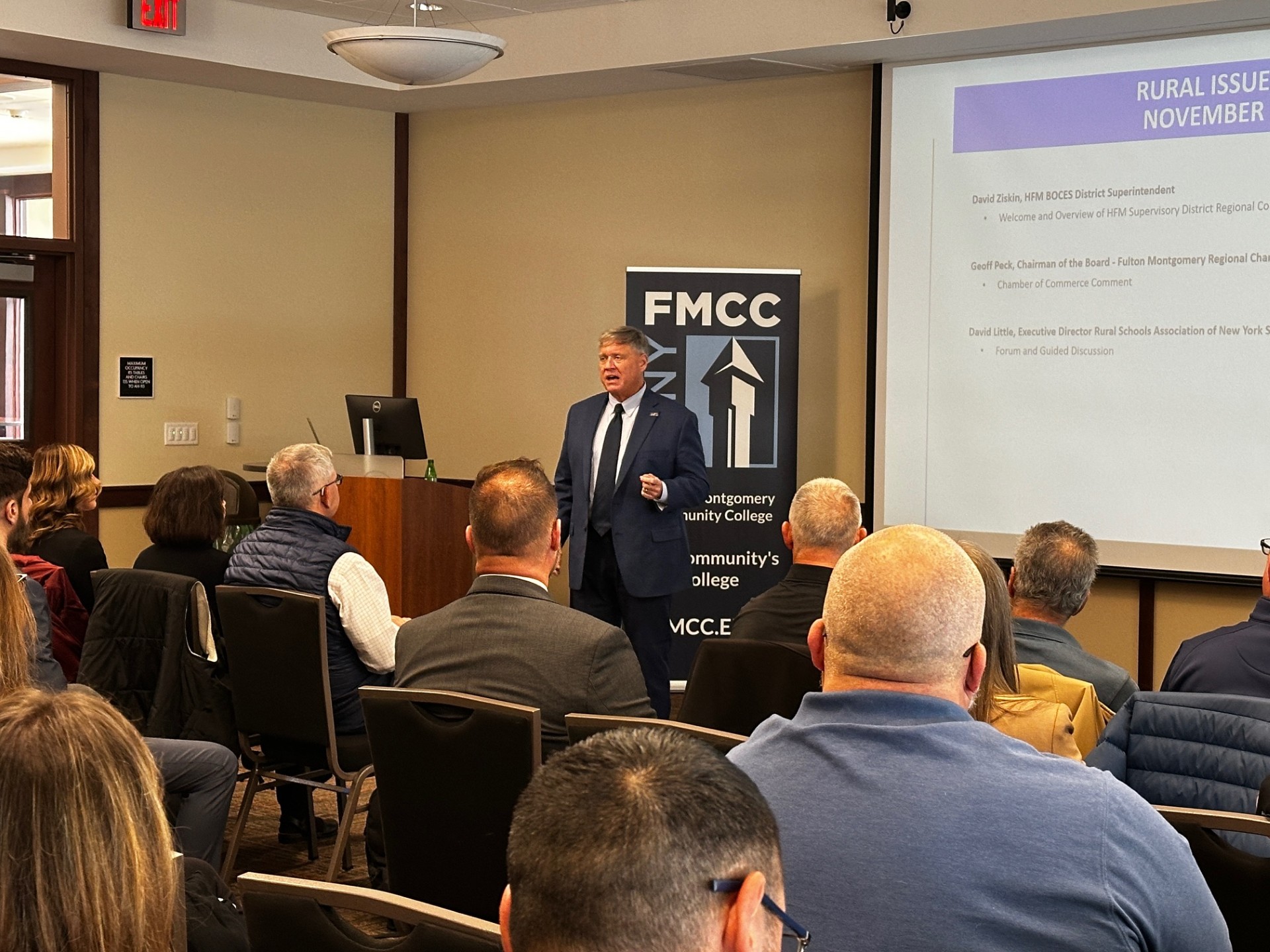
David Little speaks to a room full of regional leaders on Wednesday, Nov. 12 at the Rural Schools Issues Forum held at SUNY Fulton-Montgomery Community College.
Nearly 50 educational and community leaders from across the HFM region convened this week to address challenges facing rural schools, ranging from state funding and mental health gaps to the need for stronger workforce development programs.
The Rural Schools Issues Forum, held Nov. 12 at SUNY Fulton-Montgomery’s Allen House, gathered school superintendents, board members, business partners, and others to discuss the future of rural education, including the need for expanded Career and Technical Education and P-TECH programs to better prepare students for local jobs.
The forum was led by David Little, Esq., Executive Director of the Rural Schools Association (RSA) of New York State, who facilitated discussion on issues impacting rural schools across the state. The RSA is a membership and advocacy organization that represents the specific needs of small and rural school districts in New York. Its mission is to support these districts by providing advocacy, resources, and professional development to improve educational outcomes and help them navigate the challenges of funding and policy.
The event was one of 14 forums scheduled statewide as part of RSA’s initiative to gather input from rural districts and address their educational concerns. Little was introduced by Dr. William Crankshaw, retired Johnstown Superintendent and RSA board member, who praised him as a “champion of rural schools.”
Little opened with a briefing on the current state of rural education, followed by an opportunity for attendees to share their perspectives on local and regional challenges impacting area school districts.
Among the most pressing concerns raised was school funding, with projections indicating flat or minimal increases in the next budget cycle. Mental health and student support was another topic, as many districts face resource gaps. Attendees also discussed mandates and high costs associated with electric bus requirements, and noted growing cybersecurity concerns, as school districts are increasingly being targeted, but lack dedicated funding to address these issues.
School leaders also emphasized the importance of workforce development, calling for expanded Career and Technical Education (CTE) and PTECH programs to better prepare students for local workforce needs. Michael DiMezza, Director of Workforce Development and CTE for HFM BOCES, told the audience that a workforce summit will take place in December at HFM BOCES and is an opportunity for area business partners to advance these efforts.
Geoff Peck, Chairperson of the Fulton Montgomery Regional Chamber of Commerce, also attended and addressed the group. He highlighted the challenges local employers face in attracting and retaining talent amid a shrinking labor pool, and emphasized partnerships among schools and the chamber to sustain a strong pipeline of skilled workers for the region.
The forum concluded with a focus on working to advocate for fairer funding formulas, exploring partnerships to strengthen mental health services, improving timelines for infrastructure mandates related to electric buses, and expanding career pathways and early career experiences for students.


